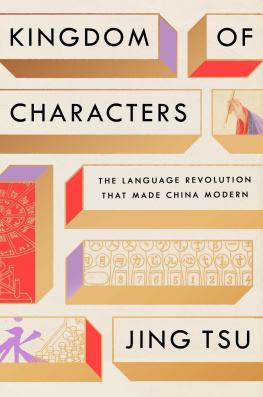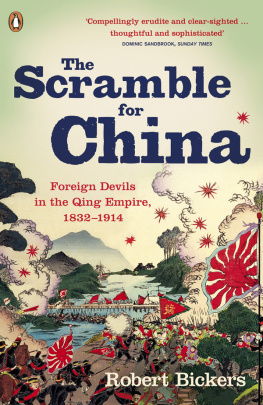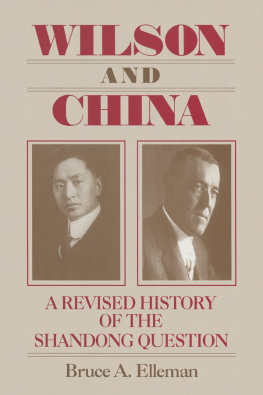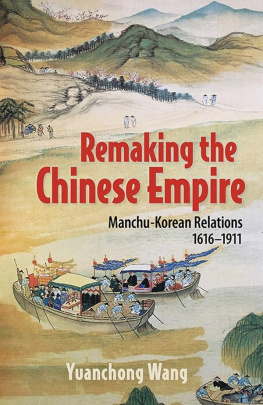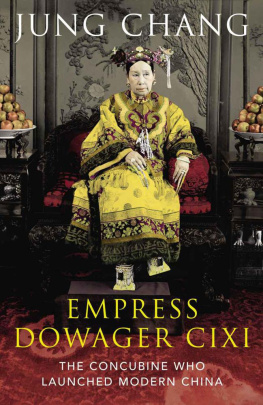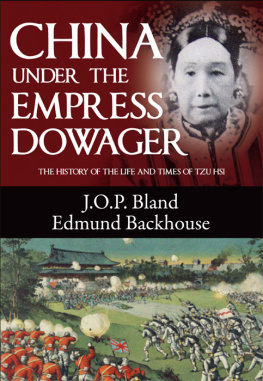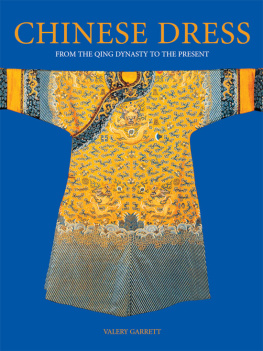Insights on Jing Tsu's Kingdom of Characters
Insights from Chapter 1
#1
Wang Zhao, a Buddhist monk, was wanted for treason by the Empress Dowager Cixi, who ruled the Qing dynasty. He wanted to go home, and so he fled to Japan and then Shandong Province in northern China.
#2
The Chinese language seemed to be a major impediment to the countrys adaptation. At negotiation tables with foreigners, the Chinese were unable to find easy equivalents for loaded concepts like rights and sovereignty and were seen as barbaric and inferior by their counterparts.
#3
The Chinese language was on the verge of a major change, as the old empire was about to be shaken up by decades of internal problems and turbulent encounters with other nations.
#4
In 1900, China was in turmoil. An early example of what would come to be known as the Map of National Humiliation began circulating in the late nineteenth century, depicting the different foreign powers as their popular avatars, carving out their share of the country.
#5
The Qing dynasty was unable to address the large-scale poverty and famine that was occurring in China, and this led to social unrest. The reform movement brought together a clique of scholars and officials who proposed ways of altering and improving governance, education, and defense.
#6
The Chinese writing system, once revered, celebrated by its people, and practiced by neighboring cultures, seemed clumsy and backward to the West. The Chinese language was seen as inherently incompatible with logic and abstract thinking.
#7
The Chinese script was not just tangential to this historical change, but it seemed as though it stood for everything that was wrong with China. Some began to wonder whether the writing system should continue to exist.
#8
Wang was a military man who rose through the ranks to become an overseer at the Board of Rites, the office in charge of the courts ceremonies and rituals. He was a poet and a melancholic patriot who saw himself as a lone monk.
#9
The task of saving China with literacy had kept Wang focused. He had created a phonetic notation system for indicating how whole characters could be read aloud. He wanted to use the Chinese language to achieve one goal in the modern era: unity.
#10
The Chinese language is the first written script ever created. It is far superior to the language of any other nation, and it can be used to share political doctrines. However, only a few Chinese officials traveled to Japan to discover Wangs book, and they did not support it.
#11
China had always harbored great linguistic diversity, and in the first century, a scholar took on the mammoth task of surveying the different forms of everyday speech. The language barrier rose above all other concerns as the most urgent and palpable consequence of Chinas backwardness.
#12
Wang was on the road, visiting his supporters and preaching the unification of speech and script. He had split with Kang and Liang, and he was hoping to test the waters with a trusted ally in Timothy Richard, the most influential Westerner in China at the time.
#13
After the Hundred Days Reform, Wang Zhaojuan was still trying to bring back the Mandarin language reform, but he had to go into hiding. He went to live with a distant family relative in Tianjin, and in 1901, he returned to Beijing.
#14
Wang was in Beijing to see Li Hongzhang, a powerful minister and viceroy. He was there to offer his opinion on how to resolve Chinas problems, but was brush-off by the minister's personal aide.
#15
The Chinese government must prioritize primary school education among the lower classes, because the countrys four hundred million people do not have the power of knowledge.
#16
Wang was obsessed with creating an alphabet for China, and he spent most of his time working on it. He never strayed from the beliefs he had shared with the emperor back in 1898: China was losing its power because language was failing its people.
#17
The Chinese education system was based on the reverse-cut method, which used the phonetic parts of two known characters to sound out an unknown third character. It took years of rote memorization to learn and was no longer accurate.
#18
The Chinese writing system was outdated, and the Western alphabet was viewed with suspicion in a climate of hostility to foreigners. A middle path had to be found. People like Wang realized there needed to be a system that acted like an alphabet for Chinese, but without simply using Roman letters.
#19
The Kangxi Emperor, who ruled China from 1644 to 1722, ordered the compilation of the Kangxi Dictionary, which coined the Chinese term for dictionary. The book was intended to correct the age-old system of reverse-cut, updating it with Manchu phonetics to reflect modern speech sounds.
#20
The Mandarin Alphabet, developed by Wang Yirong in 1903, was a phonetic script that used Chinese-derived symbols to transcribe Chinese fast and accurately. It was used to teach schoolchildren Chinese in textbooks on a variety of subjects, from botany to foreign relations.
#21
Wang was extremely successful in teaching his alphabet, and he grew restless in Yans compound. He decided to claim ownership of the Mandarin Alphabet to ensure that it was properly adopted and taught, even if it meant risking his life.
#22
After his arrest, Wang was taken to the imperial prison, where he was put in the same cell as his former associate, who had been beaten to death. He remained stoic, and through intermediaries, warned his Western friends not to intervene.
#23
Wang was released from prison two months later, to everyones shock. He received an imperial pardon from the Empress Dowager. He then devoted himself full-time to the propagation of the Mandarin Alphabet, which reached an apex in the following years.
#24
Wangs letter to the court was passed on to Natong, who used it to prove his innocence. He also did not miss the opportunity to cleverly recall the loyalty of his family to the empire, the grandfather who had fought the British in the First Opium War.
#25
The Mandarin Alphabet, which was created by Wang Dong, was used to spread the ideas of Kang and Liang during the Chinese Revolution of 1911. The ideas were largely centered around ethnic hatred and the desire to overthrow the Manchus, but they were also fueled by the urgency to industrialize and capitalism.
#26
The same was true for Chinas script. The Beijing-based Mandarin Alphabet was promoted as the standard that could unify the nation. The importance of Wangs proposal was that it turned the Beijing-based vernacular behind the Mandarin Alphabet into a candidate for the national model.
#27
The pronunciation debate was finally settled when the northern provinces, which were more numerous, voted for Mandarin, while the south voted for Cantonese. Mandarin ultimately won, and is the standard pronunciation today.
#28
Wangs legend would be remembered in discussions and anecdotes about Chinas tumultuous shift from empire to nation for decades to come. People who remembered his feisty years expressed admiration, though they also recalled the difficulty of dealing with him.
#29
Wang Jian wrote the Chinese alphabet book, and it became the first step in the larger Chinese language revolution. It was a start, but China was still far behind. The next battle would be to determine how the Chinese script would make its way in the world.
Insights from Chapter 2
#1
In 1912, Zhou Houkun took a brisk walk from his apartment to Huntington Avenue. He noticed a young woman working at a Monotype machine, which he thought was the most amazing thing he had ever seen. He decided to solve the problem of how to make bamboo as durable as concrete.


